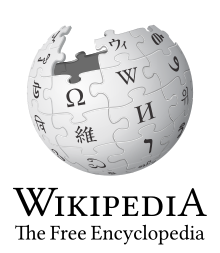On February 1, 2014, the Wikimedia Foundation’s Board of Trustees unanimously approved an unconventional new trademark policy. The new policy is uniquely permissive, was developed in a massive online collaboration among the Wikimedia community, and contains cutting-edge information design principles to make it user-friendly. Just like the content on the Wikimedia sites, the new trademark policy is licensed under a free license, so everyone is free to build upon it when crafting their own trademark policies. In short, it is the perfect fit for Wikimedia’s collaborative projects.
Unlike the legal policies of other companies that are drafted by lawyers in a vacuum (if not simply copied from other websites), this trademark policy was developed through a seven-month long consultation with the Wikimedia community to address its particular needs. This unique process distinguishes Wikimedia from virtually every other top website.
We began by asking the community how they would like to change our 2009 trademark policy. Using their suggestions and other concerns, we prepared a draft policy that we posted on a wiki for online discussion and editing. According to the page’s revision history, the draft policy was edited 138 times in the course of the remaining consultation. While the policy itself has only about 4,000 words, the consultations around the policy resulted in a discussion of 52,000 words. That’s more words than in The Hitchhiker’s Guide to the Galaxy!
Here are some of the major changes.
- The new policy creatively carves out numerous permissible uses of trademarks to allow the Wikimedia community broader use of the marks when advancing our mission. We balanced a desire to maximize free community uses of Wikimedia marks with the legal requirements of maintaining trademark protection over the marks.
- We introduced a “Quick License” to streamline the permission process to allow our community to easily use the marks for purposes that promote our projects. The Quick licenses allow almost instantaneous use of the marks for activities like events in collaboration with galleries, libraries, archives, and museums (GLAM) or photo contests after emailing a completed license to WMF. But, to avoid losing protection over the marks, WMF will monitor the licenses we receive and revoke permission if someone tries to use the marks inappropriately.
- The policy makes trademark use easier by employing clearer language and intuitive design. It was written with short sentences and simple terms without the legalese of many corporate legal documents. To verify the simplicity of the language, we applied various readability indices and rewrote text flagged as difficult until it had a better readability score. The straightforward language of the policy will allow it to be easily translated into the many languages of Wikimedia sites.
- We also enlisted the help of innovative design researchers Stefania Passera, Helena Haapio, and Margaret Hagan to improve the design of the policy. Their work focuses on contract visualization to create transparent and informative legal documents. Together we hosted Legal Design Jams at the Stanford Institute of Design and the Embassy Network, where the policy was elevated from clear text to one that incorporates the latest information design techniques. In design jams, volunteers helped develop a summary that uses the three colors commonly associated with traffic lights so users can quickly and intuitively understand when they may use the marks freely and when they need to ask permission. We adopted this color scheme in symbols throughout the policy to allow easy navigation.[1]
Every day, people look up stuff on Wikipedia, where they are greeted with the famous puzzle globe logo on prominent display. The logo lacks a few puzzle pieces, signaling to readers that they are welcome to help out with compiling all human knowledge in the world’s largest multilingual online encyclopedia. While there is always room for improvement, Wikipedia readers expect to find quality information about most anything. The puzzle globe and the word Wikipedia have come to represent a vast source of educational content that is available to people all over the world to use and adapt for the benefit of others.
Now, the trademark policy that governs these marks also reflects the collaborative nature of the Wikimedia sites. Thank you to all of the people who participated in this unique process.[2] You continue to demonstrate that the wiki way works.
Yana Welinder, Legal Counsel
Geoff Brigham, General Counsel
- Special thanks to Heather Walls, Communications Design Manager, for her work on turning the brainstormed ideas into beautiful design for the policy.
- Many thanks to Manprit Brar, Legal Fellow, for all her work with this blog post and the trademark policy. We would also like to thank the rest of the Legal and Community Advocacy team for their incredible support in this effort.

Can you help us translate this article?
In order for this article to reach as many people as possible we would like your help. Can you translate this article to get the message out?
Start translation
